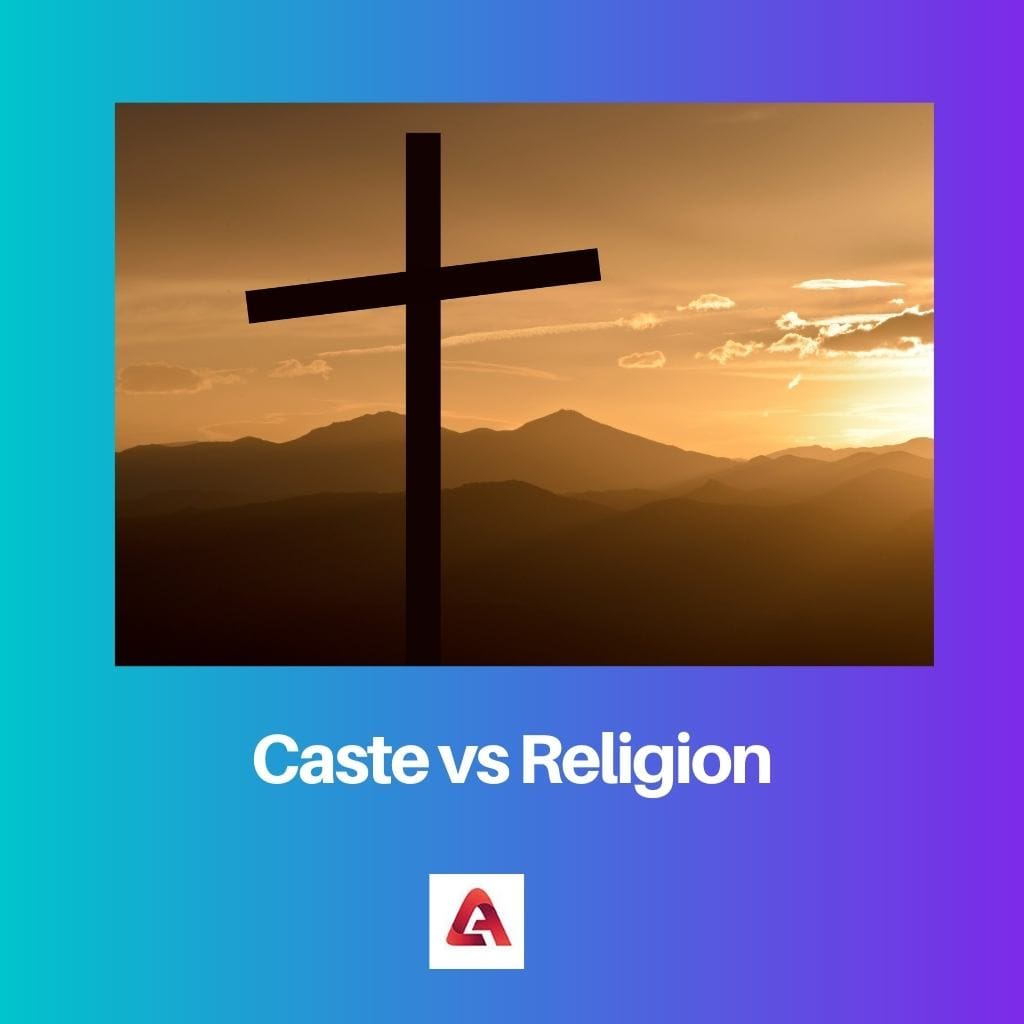Every human being on Earth belongs to a particular caste and religion. Especially in a country like India, where everyone has a caste system and a religion they follow, they are judged based on that.
Many people get confused between caste and religion. Caste is called ‘jati’ in the Indian Hindi language, which means our hereditary transmission.
Well, the hereditary transmission of a person is observed, and then his/her caste is decided. This includes occupation, ritual status, and many such things.
The belief in religion, on the other hand, means the worship of a god. It is a social-cultural system that includes social practices, worshipping places, morals, and other things that relate humanity to the spiritual elements.
Key Takeaways
- Religion is a set of beliefs and practices concerning the divine, while caste is a social system based on birth.
- An individual can change religion, but caste is determined by birth and cannot be changed.
- Caste can lead to discrimination and social inequality, while religion can provide a sense of community and belonging.
Caste vs Religion
Caste refers to a social system in which individuals are born into specific social classes or groups determined by their family background. Religion refers to beliefs and practices related to worshipping a particular deity, involving a moral code and a set of rituals.

Comparison Table
| Parameters of Comparison | Caste | Religion |
|---|---|---|
| Origin | Caste originated from religion | A religion precedes the caste system |
| Realm of focus | Social and physical | Metaphysical and philosophical |
| Focuses on | Rank on the hierarchy | Worship, morals, ethics |
| Enforcement | Higher ranking members | Divine deity and personal reflection |
| Justification | Justified through the highest ranks in the hierarchy | Justified by divine or by holy scriptures |
| Region | Region-or-culture specific | Not limited to a geographical area or region |
What is Caste?
Caste is a system where everyone is classified based on income, wealth, status, etc. You can find several types of caste in the Indian country where caste plays an important role.
The differentiating of people by their caste has been in our history, and this can never be stopped. Say, suppose taking the example of the Hinduism society where the Hindus can be recognised by their ritual purity and status.
Every individual gets their caste from birth, which cannot be changed because that is where they belong. The particular caste becomes their history and could, say, their family background. Judgements are made because of this matter.
Even today, people judge others because of their caste, and it becomes unfair because there is a thought that if a person is from a poor class or stands low in the hierarchy, he/she will remain there forever.
However, the government is taking steps to encourage the lower castes of India. You see that most examination cut-offs are quite less for the lower caste people while the cut-offs for higher caste people are higher than the lower ones.
The Hindus in Indian society are divided into four main categories: the Brahmins, Kshatriyas, Vaishyas, and Shudras. The Brahmins are considered to have the highest status in society; therefore, those people rank high in the hierarchy.
The lowest caste includes the servants, also called the ‘untouchables’ as they were not allowed to do most things that the Brahmins were allowed to do. The Brahmins considered it to bn if they even looked at the untouchables, and if they saw them, they would bathe.
However, in today’s world, there are not just four castes in our country. Surprisingly, more than 5,000 castes are in India based on different social statuses and traditions.
Other than India, the caste system can be found in other countries, like Nepal, China, Japan, and some parts of Africa.
The history of the caste system is quite strong. It cannot be abolished because people of the highest rank in the caste system might get disappointed and will not want to see their prestigious history go down the drain just like that.

What is Religion?
Religion, on the other hand, is quite different from a caste. Religion means belief or worship in a particular God or a superhuman. This is also a social-cultural system where people have morals, holy practices, sanctified places, places of worship, ethics, and such things.
Now, a country like India, where people worship idols of every kind, has a history of religions. Most religions believe that there is an afterlife where miracles happen. These beliefs and things deal with concepts that are way off natural and therefore considered supernatural.
Believing in the supernatural does not mean people believe in ghosts, vampires, or anything like that. Religion can be distinguished by an individual’s lifestyle, prayer, tradition, and practices.
Say, suppose a person goes to the temple for his daily prayer. Then it is pretty common to understand that the person is a Hindu.
Specifically, there are thousands of religions worldwide, and the most common ones are Islam, Hinduism, and Buddhism.
The practice of religion has an aim: to achieve the goals of preservation for oneself. However, different religions will have different understandings of preservation and God.
To understand the Islamic religion, study the book Quran; to understand the Hinduism religion read the Bhagavad Gita. These all are religious or holy scriptures that will tell you the purpose of life. These books’ names are taken as an example, and they will teach you different things.




